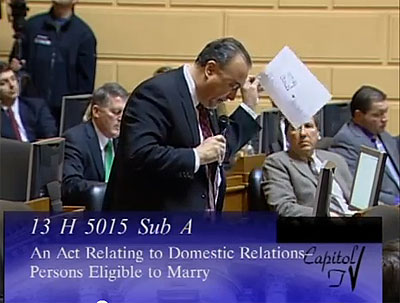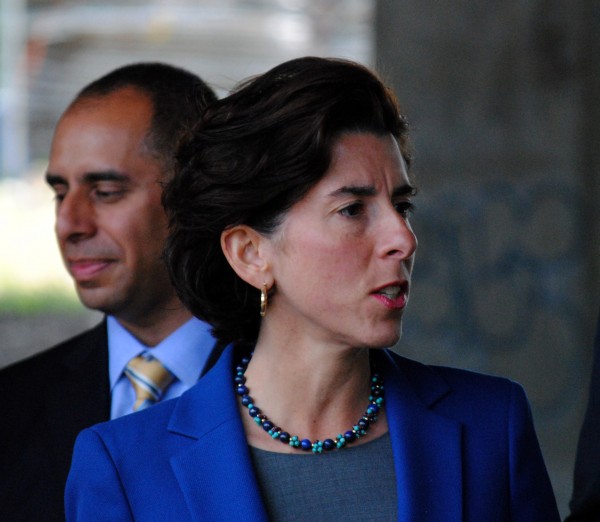
When Governor Gina Raimondo signed the budget on Tuesday, she officially signed into law language that stands as the most extreme anti-abortion language passed in Rhode Island in two decades. And because it was slipped into the budget as part of the language that codifies HealthSource RI, the state’s highly successful Obamacare insurance exchange, and not submitted as a bill, this new law was passed with no legislative debate and no chance for any input from the public.
Shockingly, this end run around democracy and against reproductive rights came from Rhode Island’s first woman governor, Gina Raimondo, who sailed to victory with the endorsement of Emily’s List and Planned Parenthood, and with the help of a putatively Democratic majority legislature.
How did this happen?
In Rhode Island, support for the right to abortion polls at 71 percent, surprisingly high for a state that hosts by percentage the greatest number of Catholics in the country. Former Governor Lincoln Chafee, a stalwart defender of reproductive rights, vetoed a “Choose Life” license plate bill, a bill that would have split the money for the vanity plate between the state and right wing Christian “abortion counseling” centers that offer false hope to women dealing with crisis pregnancies. Rhode Island stands as one of the few states to have defeated these license plates.
Simply put, in Rhode Island, reproductive rights are only controversial among a small group of right wing activists, fronted by the Rhode Island State Right to Life Committee and the Roman Catholic Diocese of Providence, who use the issue to advance their narrow political objectives.
It was this small group of activists that helped concoct two lawsuits, with the help of the right wing religious advocacy group the Alliance Defending Freedom (ADF). Doe v Burwell and Howe v Burwell were brought against HealthSource RI because there no plans offered on the state’s health exchange that did not cover abortion.
Doe, who chose to remain anonymous because of his HIV+ status, claimed that he was unable, due to his religious beliefs, to contribute money to any health plan that covered abortion, and that his needs as an HIV+ man meant that waiting until 2017 for the one plan that does not cover abortion mandated under Federal law was not practical. In addition to his health concerns, Doe claimed he was liable for fines fines levied against him for not selecting one of the plans currently available on the exchange.
The government’s reaction to the Doe lawsuit was swift: They completely caved. The state agreed to dismiss Doe’s fines, enroll him into a special plan that satisfied his moral objections to abortion, and require that the Rhode Island Office of Health Insurance Commissioner issue a mandate that there be a plan offered on the state’s health exchange that did not cover abortion at every tier of coverage.
In return, the ADF withdrew their lawsuit. Ten days later, on May 29, Governor Raimondo added the agreed upon language to her proposed budget as an amendment.
Under federal law, at least one plan that did not cover abortion had to be made available on all state exchanges by 2017. The settlement the state agreed to went far beyond that mandate.
In Rhode Island, adding new language through the budget process means that there will be no opportunity for public comment or meaningful public debate. The budget is submitted by the governor and re-crafted by the RI House of Representatives in a process that is conducted mostly behind the scenes. John Marion, executive director of Common Cause RI, a government accountability group, has called it “transactional politics.” When the budget comes to the House floor for a vote, specific parts can be debated by legislators, and amendments can be added, but the public gets no chance to directly comment.
The language Raimondo added is problematic for businesses. James Rhodes, director of public policy & government relations at Planned Parenthood Southern New England, asked, “How does a small employer, whether a religious organization or not, claim a religious exemption from covering abortion? Do they have a form to fill out to submit to the Office of Health Insurance Commissioner to declare their objection in order to get a new plan variation from an insurer? Is there any requirement to notify insured employees that their insurance does not cover this service, which is standard coverage in the small group market?”
The new language provided no process by which employers declared their objections and no process by which employees were to be notified of their employers decisions. This is important because a woman might think her health plan covers abortion, only to find out that her employer has decided, on personal religious grounds, not to cover the procedure without informing the employees.
“It is worth emphasizing that the federal health care law already imposes significant restrictions on abortion access through health care exchanges,” Steve Brown, executive director of the RI ACLU. “The additional burdens that passage of this budget article could impose, particularly on unwitting employees, is deeply troubling.”
As I tweeted at the time, “Gina Raimondo’s budget addition may allow a thousand Hobby Lobbies to bloom across Rhode Island.”

Immediately after Raimondo’s amendment was submitted, rumors began to swirl that the language was inserted as some sort of backroom deal to save HealthSource RI at the expense of women’s reproductive rights. Indeed, Speaker of the House and right wing Democrat Nicholas Mattiello had been vocal about his desire to turn the state health exchange over to the federal government.
Language that limited women’s access to abortion was rumored to be the price paid for keeping control of the health exchange in Rhode Island. However, it has been impossible to source this rumor. Rather than being concerned with limiting women’s abortion access, Mattiello’s public statements were all about the high cost of administering the health exchange on the state level.
For instance, Mattiello said that, “he would not have signed on [to including HealthSource RI in the budget] unless HealthSource administrators had significantly reduced their cost projections to the point where the surcharge could be “at or below” the level it would be if the state handed the exchange over to the federal government…”
On the House floor, during the strangely curtailed debate on the budget, an amendment was approved that somewhat mitigated the damage done by Raimondo’s abortion language. This new language, crafted with the help of Planned Parenthood and the ACLU, required any non-religious employer, as defined by the IRS, that elects to not include abortion coverage in their employee health plan, to allow employees to opt out of the company plan, and select any other plan, paying any additional costs.
This makes Rhode Island the first state to build language into its state exchange that protects those who want a health care plan that provides abortion coverage. A minor victory, considering that this imposes additional health care costs on women. If an employer elects not to cover abortion in their health plans, women pay additional fees out of pocket.
Additionally, women may find themselves in a difficult spot when it comes to dealing with employers who choose not to cover abortion. Opting out of the employer’s health plan may serve as a signal to employers that the employee is pro-choice. This may have an effect on a woman’s ability to secure raises, promotions or other workplace benefits if an employer chooses to act on this assumption in a biased or bigoted manner.

The Planned Parenthood amendment was supported by an unlikely coalition of legislators, including long time pro-choice Representative Edie Ajello and long time abortion and LGBTQ rights foe Representative Arthur Corvese. But behind the scenes, no one was happy with the compromise. A source confided to me that Barth Bracy, executive director of RI Right to Life, Providence Catholic Diocese lobbyist Bernard Healey and conservative Democratic Representative John DeSimone, were railing against the compromise language during last minute backroom negotiations.
The amended amendment passed and the entire budget passed unanimously and in record time.
After the budget passed the House, both sides declared victory.
Bracy explained in a newsletter that the “victory” was “the fruit of six years of intense legislative, political, and legal battle.” (Bracy did not explain how the seeds of this victory were planted a year before Obamacare became law.) Bracy further explained, or rather, did not explain, that, “Due to the complexity of Obamacare, and its implementation in Rhode Island, neither the media nor our opponents at Planned Parenthood and in the pro-abortion caucus of the General Assembly, yet appear to understand the extent of our victory.”
Bracy promises to explain the completeness of his victory after the Governor signs the budget.
Meanwhile, James Rhodes of Planned Parenthood claimed partial victory, dinging Raimondo for choosing “to widely expand the number of plans that do not cover abortion beyond federal minimum standards” while doing “nothing to protect abortion access for employees of small businesses in Rhode Island.”
Rhodes went on to say, “In the wake of the Hobby Lobby Supreme Court decision, we were surprised the Governor did not seek protections for employee access to comprehensive reproductive health care. It is clear that leaders in the House and Senate recognized this budget loophole. The passed budget includes an invaluable amendment that will allow employees of small businesses that claim an objection to covering abortion, to enroll in the HealthSource RI Full Employee Choice program.”
In the end, the right of some women to access reproductive health care has been eroded in favor of the fake right of employers to not provide such healthcare on religious grounds. For her part, the Governor’s office has refused repeated requests for clarification.
Given the transactional and punitive nature of RI politics, no one in the legislature seems willing to go on record about this debacle.
This new assault on women’s rights is the spawn of the odious SCOTUS Hobby Lobby decision, based on the Religious Freedoms Restoration Act (RFRA), writ small a thousand times. I’ve argued before that it’s past time to repeal or at least seriously amend Rhode Island’s RFRA, and just recently the ACLU seems to have reached the same conclusion.
Meanwhile, those who supported Gina Raimondo’s bid for Governor of Rhode Island might want to seriously reconsider their support. She has revealed herself as no champion of reproductive rights.

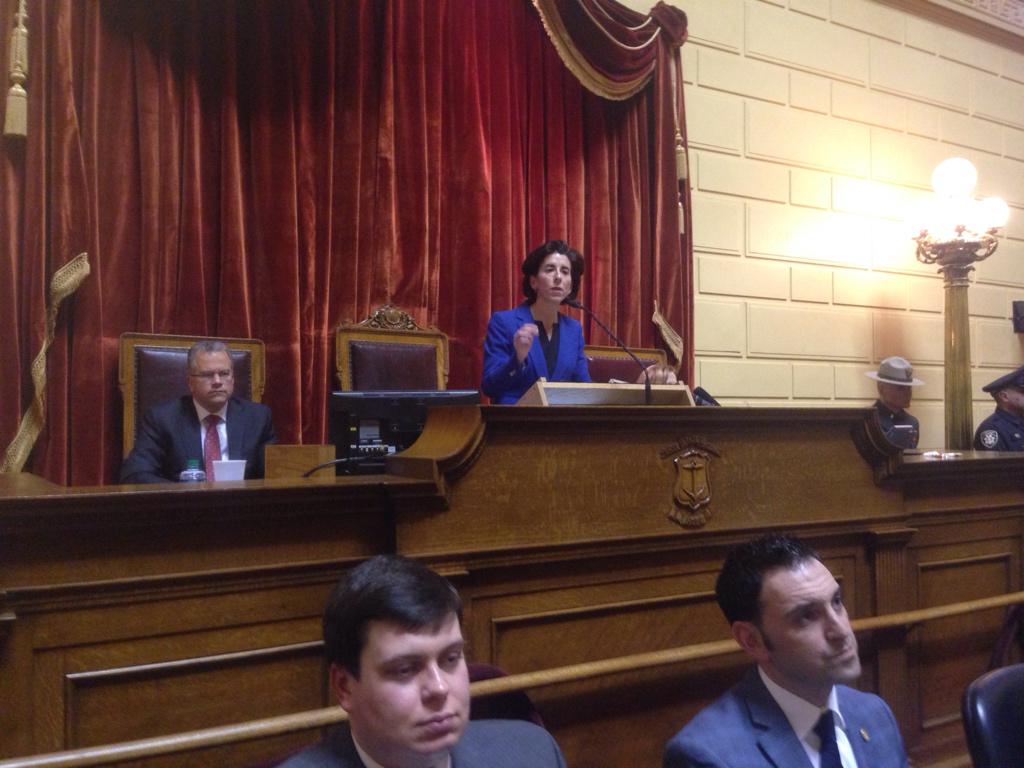

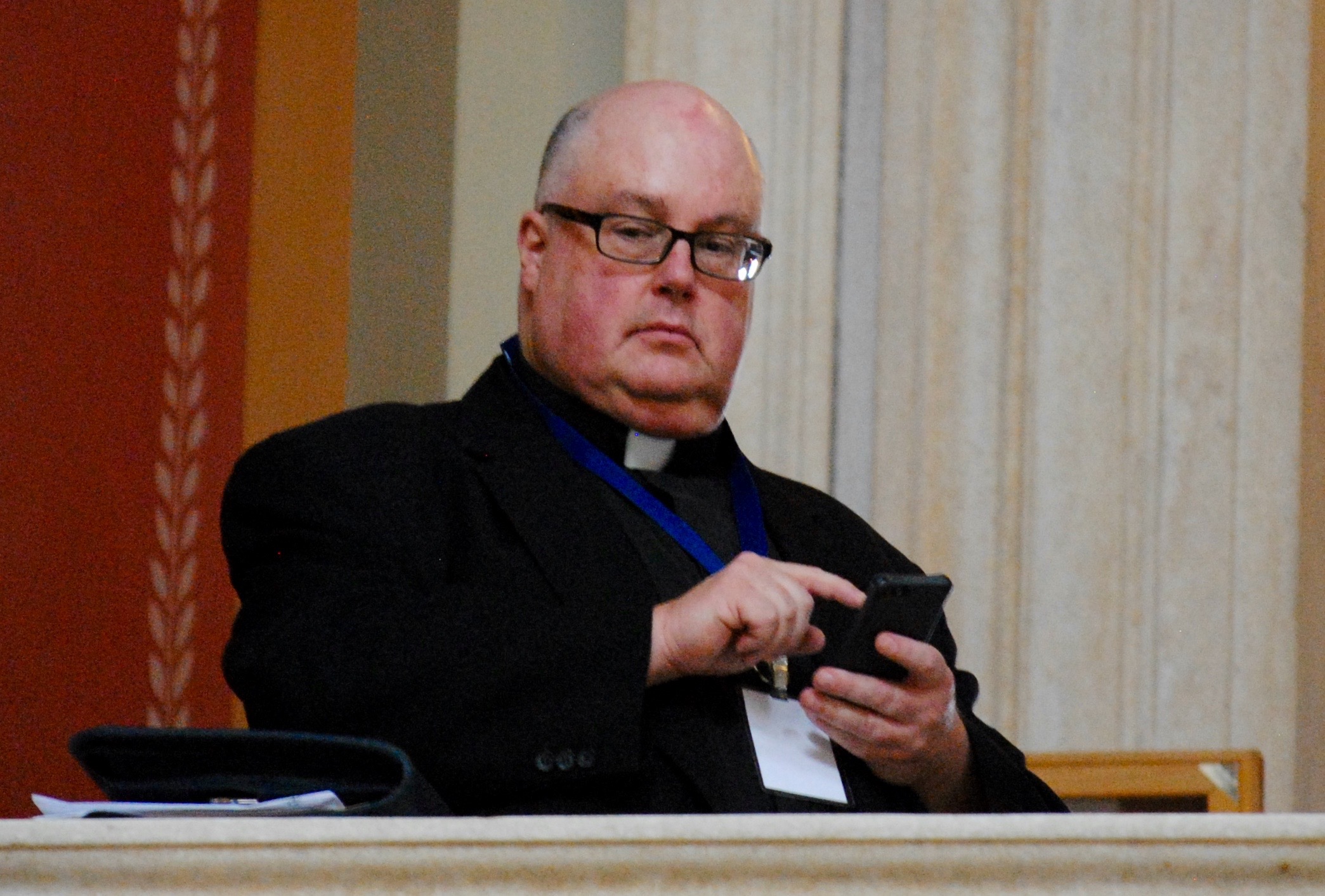
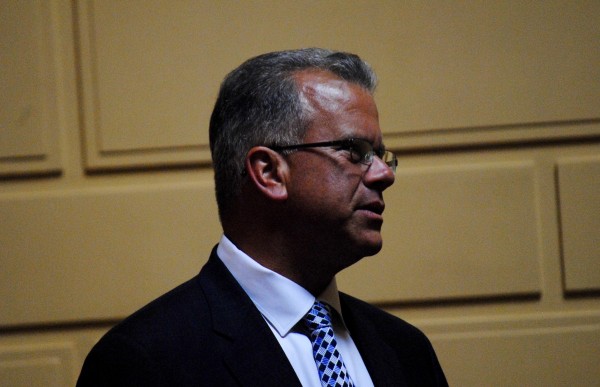
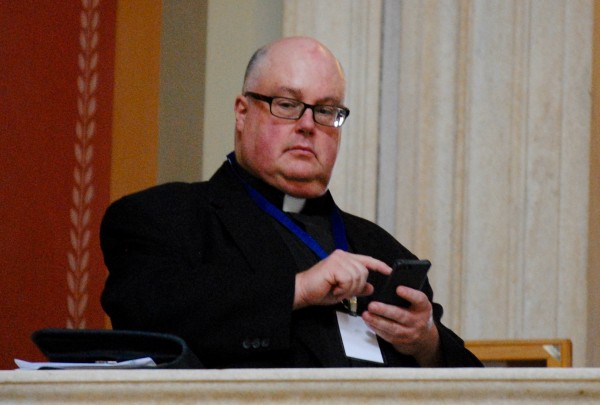

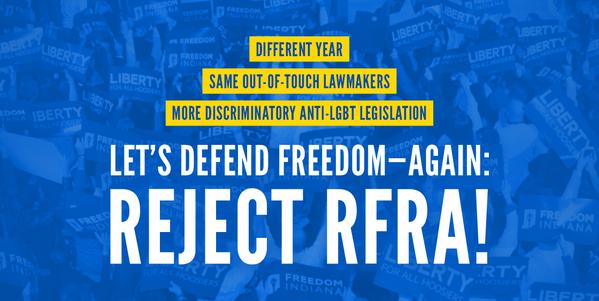
 When Rhode Island Speaker Nicholas Mattiello promised to focus on “
When Rhode Island Speaker Nicholas Mattiello promised to focus on “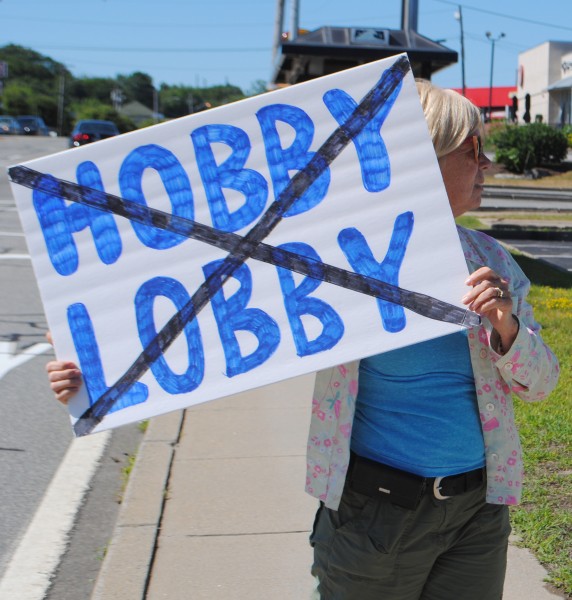 When the federal RFRA was
When the federal RFRA was 